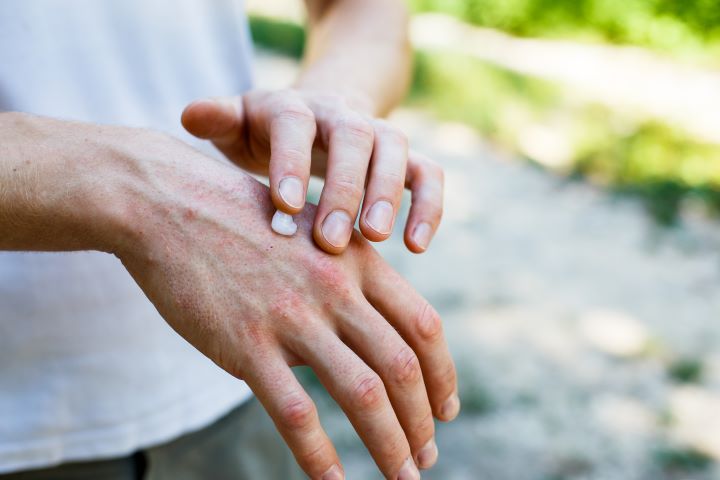Itchy Skin: Causes, Relief, and When to Seek Help
Itchy skin, also known as pruritus, is a common and often frustrating condition that can affect people of all ages. This uncomfortable sensation can range from a mild annoyance to a severe, disruptive problem that impacts daily life. Understanding the causes of itchy skin and knowing how to find relief is crucial for managing this condition effectively.

How can I find relief from itchy skin at home?
There are several ways to alleviate itchy skin without medical intervention. Keeping the skin moisturized is crucial, so apply a fragrance-free, hypoallergenic lotion or cream regularly, especially after bathing. Using cool compresses or taking lukewarm baths with colloidal oatmeal can also provide relief. Avoid scratching, as this can further irritate the skin and potentially lead to infection. Instead, try gently patting or tapping the itchy area. Wearing loose, breathable clothing made from natural fibers like cotton can help reduce irritation and allow the skin to breathe.
What over-the-counter treatments are available for itchy skin?
For persistent itching, several over-the-counter options can offer relief. Antihistamines, such as diphenhydramine or cetirizine, can help reduce itching caused by allergic reactions. Topical treatments containing hydrocortisone, calamine, or menthol provide localized relief and can be particularly effective for insect bites or small areas of irritation. For widespread itching, consider using moisturizing body washes or adding colloidal oatmeal to your bath. Always follow the instructions on the product label and consult a pharmacist if you have any questions about which treatment might be best for your specific situation.
When should I see a doctor for itchy skin?
While many cases of itchy skin can be managed at home, there are instances where medical attention is necessary. If your itching persists for more than two weeks despite home remedies, or if it significantly impacts your quality of life, it’s time to consult a healthcare professional. Additionally, seek medical advice if you experience severe itching without a visible rash, if the itching is accompanied by other symptoms like fever or weight loss, or if you notice any changes in the color or texture of your skin. These could be signs of an underlying condition that requires diagnosis and treatment.
Are there any long-term solutions for chronic itchy skin?
For those dealing with chronic itchy skin, long-term management strategies are essential. Identifying and avoiding triggers is crucial, which may involve keeping a diary to track potential irritants. Implementing a consistent skincare routine with gentle, fragrance-free products can help maintain skin health. In some cases, your doctor may recommend prescription medications, such as stronger corticosteroid creams or oral medications, to manage underlying conditions causing the itching. For conditions like eczema or psoriasis, phototherapy (light therapy) may be an effective long-term treatment option. It’s important to work closely with a dermatologist to develop a personalized treatment plan for chronic itchy skin.
How can I prevent itchy skin?
Prevention is often the best approach to managing itchy skin. Start by keeping your skin well-hydrated, using a humidifier in dry environments, and avoiding hot showers or baths. Choose gentle, fragrance-free soaps and detergents to minimize skin irritation. Protect your skin from extreme temperatures and direct sunlight, and wear gloves when working with harsh chemicals or irritants. Maintaining a healthy diet rich in omega-3 fatty acids and staying well-hydrated can also contribute to overall skin health. By adopting these preventive measures, you can reduce the likelihood of experiencing itchy skin and maintain healthier, more comfortable skin in the long run.
In conclusion, itchy skin is a common issue with various causes and solutions. By understanding the triggers, implementing appropriate home remedies, and knowing when to seek medical attention, most people can effectively manage this uncomfortable condition. Remember that persistent or severe itching may indicate an underlying health issue, so don’t hesitate to consult a healthcare professional if your symptoms don’t improve with self-care measures.
This article is for informational purposes only and should not be considered medical advice. Please consult a qualified healthcare professional for personalized guidance and treatment.




